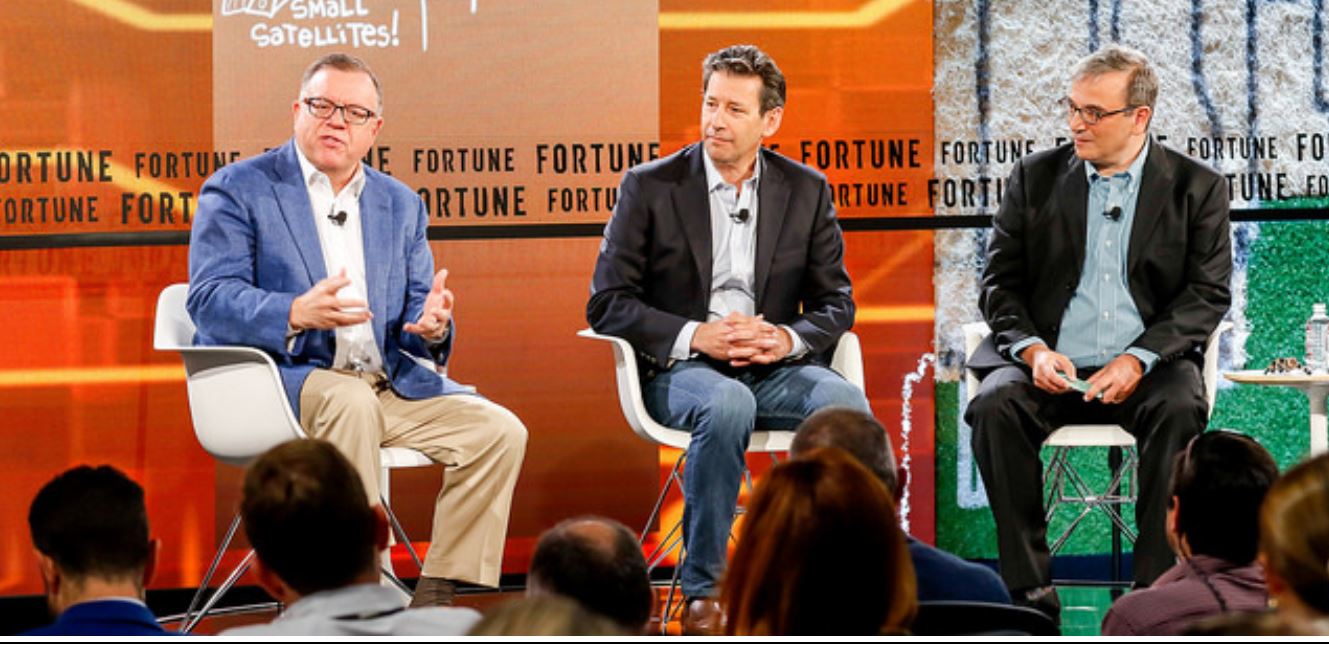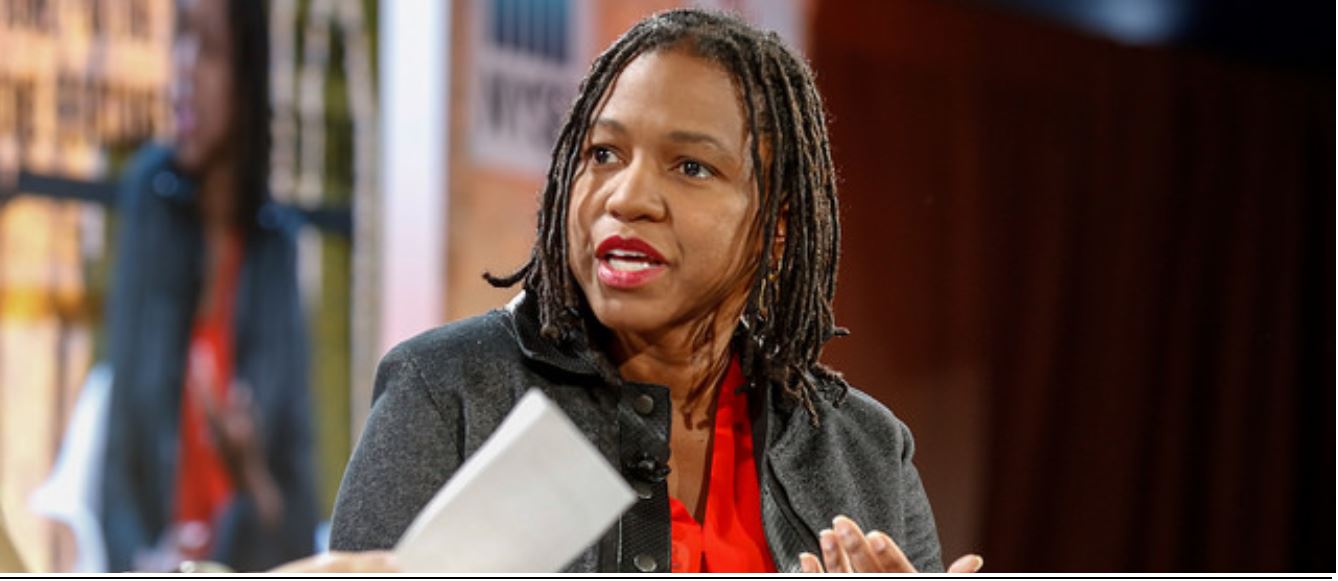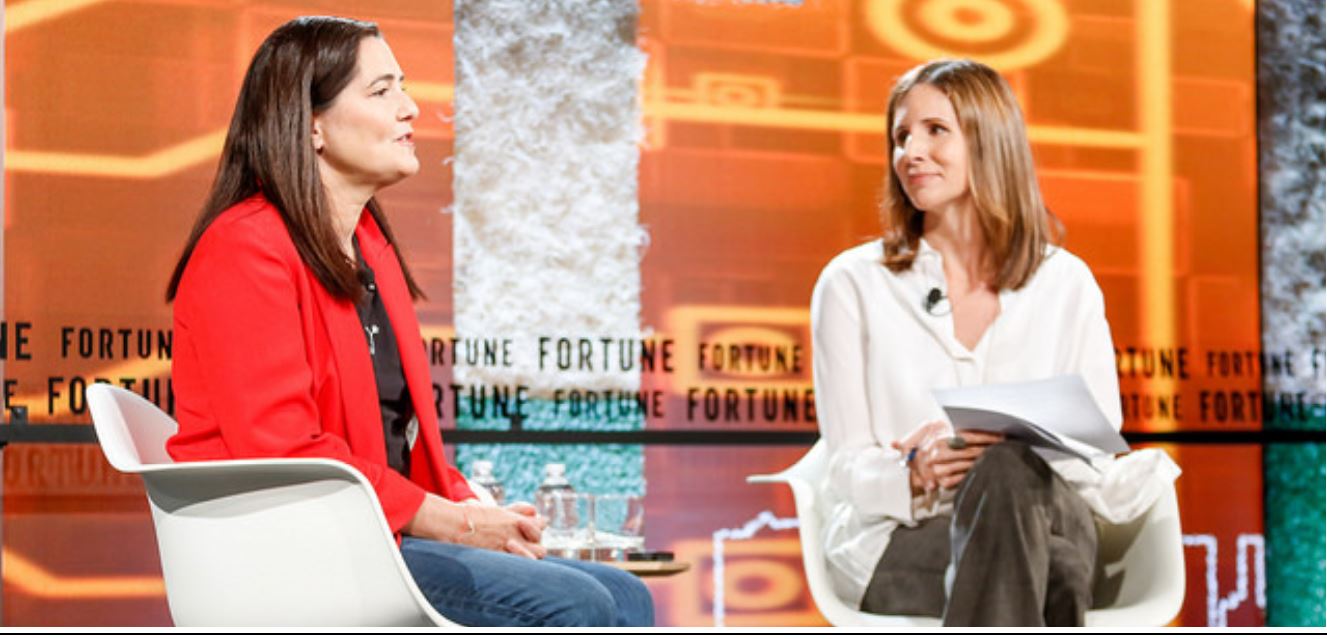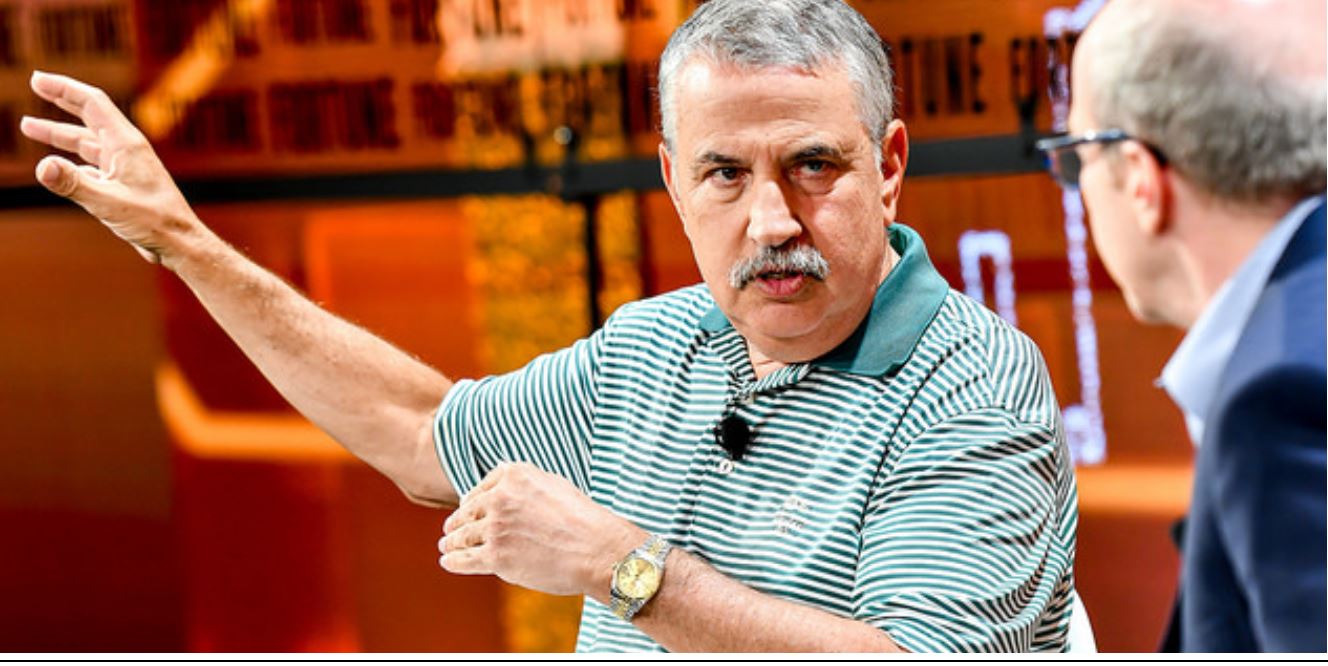
Web Developers
This week, the Coresight Research team attended the Fortune Brainstorm Tech 2018 conference in Aspen, Colorado. Here, we share our takeaways from the second half of the conference.
Dan Hart, CEO of Virgin Orbit, and Howard Lance, CEO of Maxar Technologies, discussed the profound impacts that technology and infrastructure in space can have on our everyday lives on Earth:
Stacy Brown-Philpot, CEO of TaskRabbit, spoke about the company’s business model and its acquisition by IKEA last year. Considering that IKEA’s affordable furniture is notoriously difficult to assemble, it’s perhaps unsurprising that the company bought TaskRabbit, which provides on-demand contractors to complete all sorts of household tasks, including furniture assembly. IKEA informs shoppers that TaskRabbit workers are available to help assemble furniture, and the company has seen website sales rise as a result, Brown-Philpot said. While TaskRabbit aims to join IKEA in each of the 49 countries in which the retailer operates, Brown-Philpot said that her company is also open to partnering with other companies that could benefit from its services.
Governments and Companies Must Collaborate to Improve Cybersecurity
Jen Easterly, Managing Director at Morgan Stanley and a former cybersecurity adviser to President Barack Obama, discussed the importance of cybersecurity to individuals’ data, companies’ interests and national security. She was joined Jay Kaplan, CEO of security firm Synack. The executives mentioned two reasons cyber attacks should be taken seriously, and one important way the US can improve its cybersecurity:
Mandy Ginsberg, CEO of online dating giant Match Group, spoke about the highly competitive online dating industry. She outlined three reasons Match has been, and will continue to be, successful:
DoorDash Darts into the Future
DoorDash CEO Tony Xu and Sequoia Capital Partner Alfred Lin spoke about the rapidly growing food delivery business in the US. Although DoorDash has become popular in many corners of the country, only 5% of restaurant sales are generated online. The executives each discussed a few key reasons DoorDash is so necessary and successful, despite such a small proportion of restaurant meals being ordered for delivery, and why the company is poised to thrive in the future:- Xu spoke about his firsthand experience in both the delivery and food industries, and explained that it is nearly impossible for individual restaurants to efficiently run their own delivery operations. DoorDash, he said, is all about helping small businesses thrive as more and more people turn to delivery.
- DoorDash differentiates itself from other food delivery services by focusing on getting the little things right, from finding where “dashers” (delivery workers) can park when picking up orders from restaurants to getting customers their ice cream orders within 10 minutes to ensure it isn’t soup when it arrives.
- DoorDash is partnering with governments to work toward a system through which it can offer benefits to its dashers.
Space: The Final Frontier for Governments and Businesses Alike
 Left to right: Dan Hart, CEO, Virgin Orbit; Howard Lance, CEO, Maxar Technologies; and Aaron Pressman, Senior Writer, Fortune
Source: Fortune
Left to right: Dan Hart, CEO, Virgin Orbit; Howard Lance, CEO, Maxar Technologies; and Aaron Pressman, Senior Writer, Fortune
Source: Fortune
Dan Hart, CEO of Virgin Orbit, and Howard Lance, CEO of Maxar Technologies, discussed the profound impacts that technology and infrastructure in space can have on our everyday lives on Earth:
- Both Virgin Orbit and Maxar Technologies are dedicated to improving satellite technology. Virgin Orbit focuses largely on designing launch systems to get ever increasing numbers of commercial satellites into space. Maxar Technologies is developing technology that allows satellites to image Earth with greater precision to better track ships and planes. It is also working to reduce the costs of commercial satellites for companies such as DirecTV.
- Both Hart and Lance told the audience that space innovations that seem like science fiction may be closer to reality than the public thinks. OneWeb, a web of satellites that could provide Internet connectivity to all corners of the world, may be launched as soon as next year, while space travel to the moon may be commercially viable within the next 20 years.
- Space infrastructure is essential to the functioning of our armed forces and to our national security. The government should get involved in ensuring the safety of our assets in space, Hart and Lance noted.
AI: Society’s Best Friend and Worst Enemy
Mike Abelson, VP of Strategy at General Motors, and Mike Capps, CEO of Diveplane, discussed what impact AI will have on modern society. Both speakers emphasized that the pace of AI advancement will be quicker than most believe. Abelson claimed that in the near future, engineers will have a completely different set of tools to work with, and that technology may soon resemble devices from Star Trek. Both Abelson and Capps emphasized the importance of not only creating effective AI, but also understanding how it works, to ensure accountability and predictability in potentially dangerous applications such as self-driving cars. Both Abelson and Capps believe that AI will help workers do their jobs more effectively in the short term, but that in the long run, it will change the nature of many jobs—an eventuality that governments and companies should begin preparing for.TaskRabbit and IKEA: A Match Made in Heaven
 Stacy Brown-Philpot, CEO, TaskRabbit
Source: Fortune
Stacy Brown-Philpot, CEO, TaskRabbit
Source: Fortune
Stacy Brown-Philpot, CEO of TaskRabbit, spoke about the company’s business model and its acquisition by IKEA last year. Considering that IKEA’s affordable furniture is notoriously difficult to assemble, it’s perhaps unsurprising that the company bought TaskRabbit, which provides on-demand contractors to complete all sorts of household tasks, including furniture assembly. IKEA informs shoppers that TaskRabbit workers are available to help assemble furniture, and the company has seen website sales rise as a result, Brown-Philpot said. While TaskRabbit aims to join IKEA in each of the 49 countries in which the retailer operates, Brown-Philpot said that her company is also open to partnering with other companies that could benefit from its services.
Governments and Companies Must Collaborate to Improve Cybersecurity
Jen Easterly, Managing Director at Morgan Stanley and a former cybersecurity adviser to President Barack Obama, discussed the importance of cybersecurity to individuals’ data, companies’ interests and national security. She was joined Jay Kaplan, CEO of security firm Synack. The executives mentioned two reasons cyber attacks should be taken seriously, and one important way the US can improve its cybersecurity:
- The cyber threat is real, and may be the biggest threat to national security since 9/11. Cyber attacks could threaten the electricity grid, air traffic control and the water supply.
- The US is lagging other countries in terms of relative spending on cyber security. China is building six universities dedicated to cybersecurity education, while North Korea spends an estimated 14% of its GDP on cyber warfare.
- In order to combat cyber threats, the US government and companies need to collaborate to invest in cybersecurity education and understand how to efficiently defend data and infrastructure against cyber attacks.
A Perfect Match for the Future of Online Dating
 Mandy Ginsberg, CEO, Match Group, and Leigh Gallagher, Assistant Managing Editor, Fortune
Source: Fortune
Mandy Ginsberg, CEO, Match Group, and Leigh Gallagher, Assistant Managing Editor, Fortune
Source: Fortune
Mandy Ginsberg, CEO of online dating giant Match Group, spoke about the highly competitive online dating industry. She outlined three reasons Match has been, and will continue to be, successful:
- Match is highly acquisitive and operates many different online dating brands, including Tinder, Match.com and more niche sites such as DemocraticPeopleMeet.com, enabling the company to appeal to a wide base of consumers.
- The company protects its intellectual property. Match is dedicated to preserving its monopoly on Tinder’s trademark “swipe” feature, even at the cost of a high-profile feud with rival dating app Bumble.
- Even as Facebook enters the online dating world, Match is confident that it will remain successful. Ginsberg said that most people prefer to keep their dating lives separate from their friends and family, weakening Facebook’s appeal as a dating site. Additionally, Ginsberg noted that typical online daters use three different apps to find matches, leaving room for Match even if additional players enter the market.
Lifelong Learning Key to Success
Best-selling author and New York Times columnist Thomas Friedman joined Fortune Editor Alan Murray to discuss how people, companies and governments can thrive in the rapidly changing world. Lifelong learning, rather than simply coasting on four years of college education, is essential, Friedman said. Governments and companies should incentivize lifelong learning to produce the next generation of leaders, he noted. Friedman also illustrated three changes in the “climate” of the current world that he believes demand our attention and adaptation to:- Climate of the climate: climate change is a threat that demands our immediate attention. We can no longer push this issue off into the future.
- Change in the climate of global relations: globalization has made nations interdependent in a way never before seen. This means that the failure of our rivals becomes just as dangerous to us as it is to them.
- Change in the climate of technology: technology is growing faster than we can adapt to it. We need to improve our adaptability in order to take advantage of technological progress.
 Thomas Friedman, author and New York Times columnist
Source: Fortune
Thomas Friedman, author and New York Times columnist
Source: Fortune